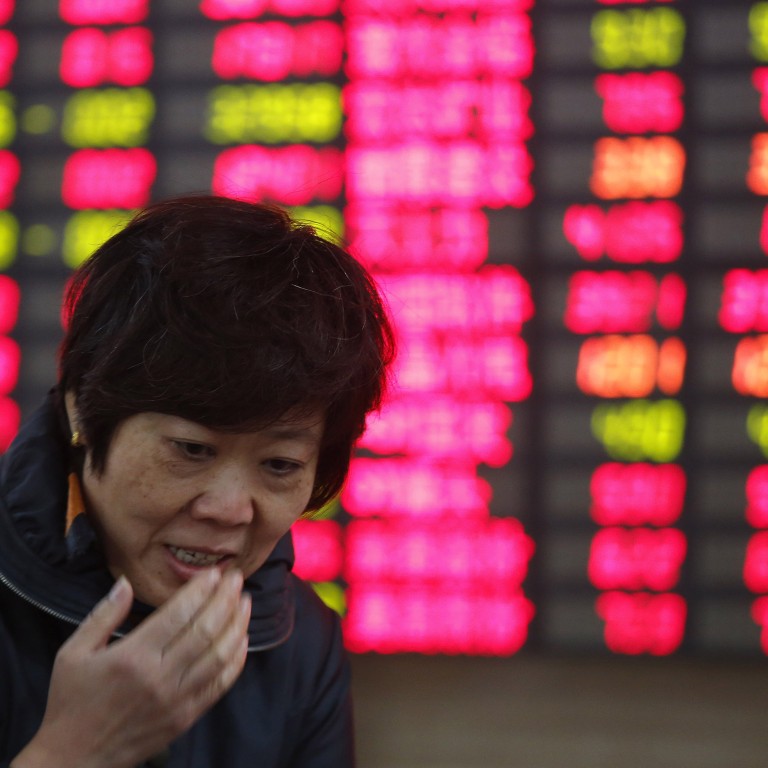
China must crack down on rampant insider trading
Hu Shuli says the problem is so widespread that it has become normalised, and a major stumbling block in capital market development
The prevalence of insider trading has become a headache for China's market regulator, recent developments show.
Take two incidents this month. On June 6, Citic Securities analyst Zhang Mingfang revealed news of Livzon Pharmaceutical Group's equity incentive plan in several WeChat messaging groups. Three days later, Suning Commerce vice-president Li Bin hinted at big news on his social media account. In both cases, the news boosted the companies' share prices.
The Shenzhen Stock Exchange has since announced it is investigating Zhang's disclosure, and Citic has suspended the analyst from her duties. By contrast, no action has yet been taken by the authorities in Li's case. While Zhang's revelation was a textbook case of disclosure of insider information, Li's action was also questionable .
The securities regulator must tackle the problem head-on if it is serious about shifting the focus of its work from directing the market's rise and fall to ensuring market fairness.
For more than 20 years, China's capital market has been known not only for its heavy government influence but also as a rumour mill. So much speculative news does the rounds that it's possible to find fairly accurate information about a listed company's financial performance even before any official announcement. The source is undoubtedly a market insider, and the reason for the leak is invariably someone trying to make a quick buck.
Thirteen years ago, economist Wu Jinglian likened China's stock market to a casino, "perhaps even worse than a casino". Sadly, the description is still apt today. The gambling may even have got worse.
What is new today is the use of social media as the main platform for spreading market rumours. Some insiders have even managed to make a name for themselves through online forums and blogs, as well as on weibo and WeChat.
There's no ignoring the harm of insider trading: it compromises market fairness and damages its integrity; it allows investors to compete not on ability and competence but on who they know. This turns value investing into a joke, and pushes small-time investors to leave the market.
Insider trading is arguably a reason for China's lacklustre stock market. It also provides cover for other kinds of corrupt behaviour and is a stumbling block in China's effort to build a sound market economy based on the rule of law.
Regrettably, the regulator has rarely penalised insider trading, mainly because of the difficulty in proving the crime.
Enforcement officers often suspect insider trading, of course, because the signs are not hard to spot: a sudden change in share prices accompanied by a rush of market rumours. But investigating and proving the crime is not so easy. It requires sifting through available data to find evidence to trace the leak back to its source.
The unhealthy legal environment in today's China makes this a near impossibility. Thus, over the years, only a handful of people have been found guilty of insider trading and punished - whether by administrative penalties or through the criminal courts.
Lax enforcement only encourages the law-breakers. Those who leak information now think nothing of it and even use it as a way to attract eyeballs and win over investors.
Following Zhang's indiscretion, one market forum even started a discussion thread titled "We support Zhang Mingfang and hope there are more conscientious analysts like her". The regulator must send a strong message that insider trading will not be tolerated.
The China Securities Regulatory Commission has three main goals: ensure the market is open, fair and just; protect the legal rights of all investors, particularly vulnerable retail investors; and promote the healthy growth of the capital market. Insider trading is a threat to all of these goals, and the commission has a duty to stamp it out.
Three difficulties stand in its way: a weak foundation of the rule of law, weak supervisory powers and institutional obstacles.
Although China's criminal law and securities law both set out the parameters of insider trading, its definition remains too broad. The punishment spelled out is also too light to act as a deterrent.
Investigating such crimes can also take up resources that China does not have, especially when compared with mature markets like the US.
Since 2009, the commission has strengthened its data collection and has also demonstrated resolve in rooting out misbehaviour in public listings. We hope the authorities can bring the same spirit to bear in their fight against insider trading.
Insider trading is a global problem, but it is particularly rampant in China. It's time for a crackdown, and we're looking to the regulator to set an example of uncompromising enforcement.

